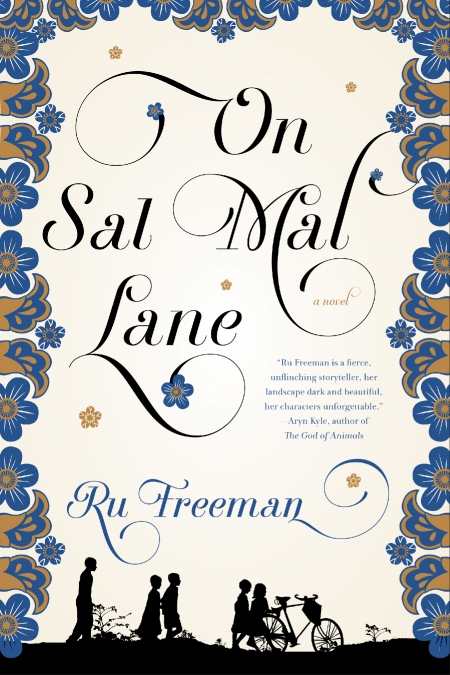On Sal Mal Lane
There are times when you’re on the outskirts—of people, situations, or stories—and you know that to plunge ahead means your heart may get a little broken. But you do it anyway, because the taste of something true is too much to turn away from. This is the case with Ru Freeman’s second novel, On Sal Mal Lane, which begins in 1979 and chronicles, through the lens of one small dirt lane, the years leading up to Sri Lanka’s two-decade civil war.
Sal Mal Lane is home to a collection of families of varying religious beliefs, political leanings, and ethnicities. It is a place echoing with cricket games, cups of tea, music, and laughter. It is also a lane filled with abuse, prejudice, and misunderstanding. It is, of course, a microcosm of the island.
“And who I am?” explains the omniscient narrator in the prologue, “I am nothing more than the air that passed through these homes, lingering in the verandas where husbands and wives revisited their days … I am the road itself, upon whose bosom the children played French cricket with their knees locked together … To tell a story about divergent lives, the storyteller must be everything and nothing. I am that.”
The heart of the story begins just as the Herath family joins the neighborhood. The two boys and two girls, ranging in age from seven to twelve, are musical, kind, and well-kept. But there is also something else about them. “It was the way they stood together even when they were apart. There was never a single Herath child in conversation, there were four; every word uttered, every challenge made, every secret kept, together.” This, you understand early on, may be their undoing.
But these are the characters who will lead us into other homes on the lane. These are the children we will watch stretch and grow into themselves. It is through this family that readers will see the world of Sal Mal Lane and, ultimately, Sri Lanka.
Freeman is a tender writer, deftly weaving culture, history and, yes, redemption into a story with a range of rich, earned feeling. It’s highly likely that readers will close the book with a different outlook on life, love, and loss. But that’s the way of tasting truth, of growing up.
Ru Freeman’s first book, A Disobedient Girl, was translated into seven languages. She calls both Sri Lanka and America home.
Reviewed by
Hope Mills
Disclosure: This article is not an endorsement, but a review. The publisher of this book provided free copies of the book to have their book reviewed by a professional reviewer. No fee was paid by the publisher for this review. Foreword Reviews only recommends books that we love. Foreword Magazine, Inc. is disclosing this in accordance with the Federal Trade Commission’s 16 CFR, Part 255.

